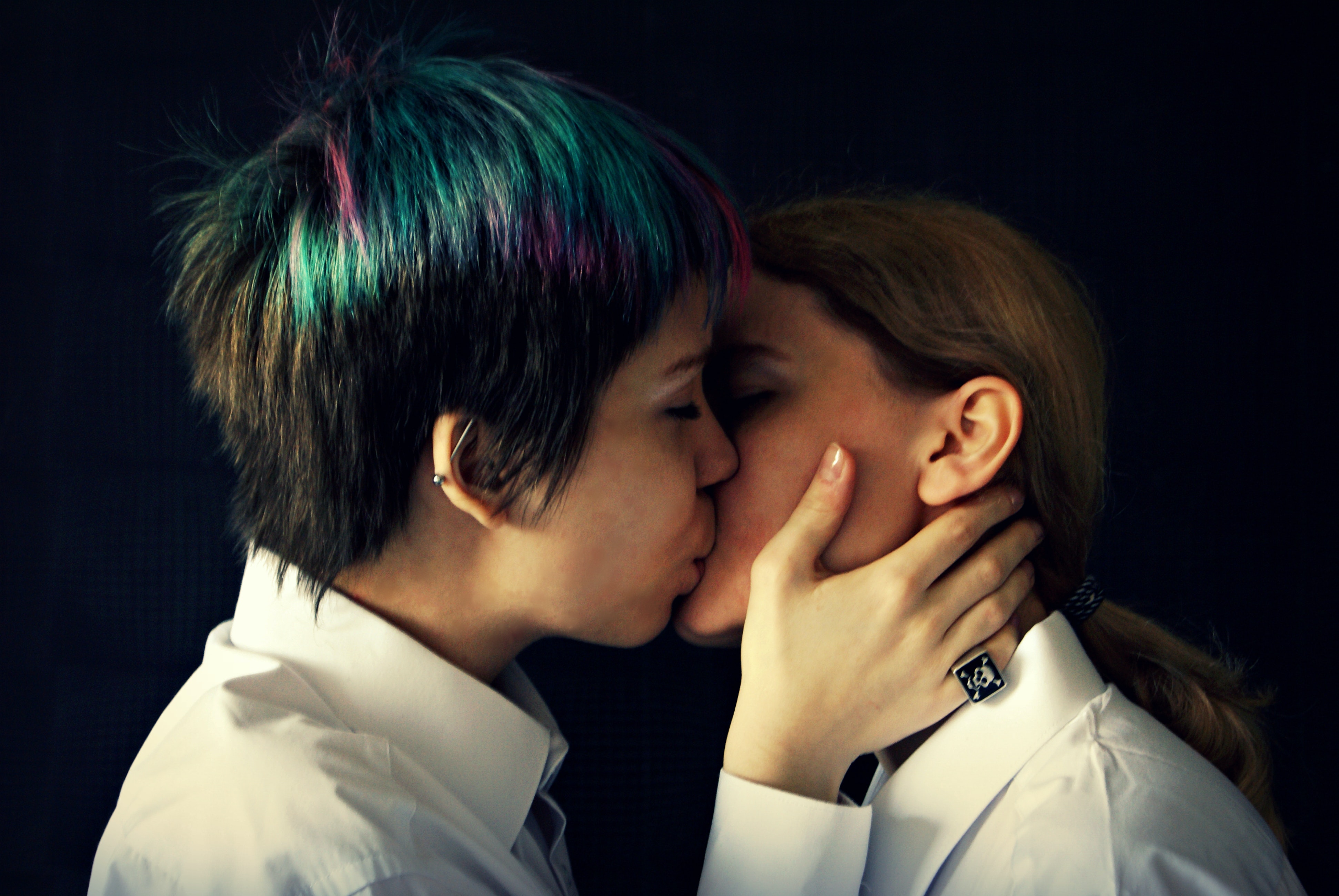Lesbian Visibility Day: what is it?
I became aware of Lesbian Visibility Day in 2019. Internet searches tell us this international awareness day originated in 2008. However, there is no reliable source with detailed information on its origin.
It is somewhat ironic that I, as a lesbian who has researched lesbian visibility on screen, had never heard of it and found out by chance on social media. None of my lesbian friends had heard of it either. We are not alone, as this article on After Ellen, ‘the leading site for lesbians worldwide’, attests.
This invisible Lesbian Visibility Day raises interesting questions: why have we never seen our workplaces or wider culture mark this day? Is it important? Lesbian invisibility has a long history. For example, while sexual activity between men was outlawed in the U.K., sex between women was never illegal – it was simply never mentioned.
In an era of what feels like an ever-increasing number and variety of awareness days, Lesbian Visibility Day seems similarly to have slipped through the net – until now. In 2020, U.K.-based DIVA, ‘Europe’s leading magazine for lesbian and bi women’, is making a week of it, with a planned launch in Parliament (revised, now, due to the Covid-19 Global pandemic).
Why your organisation should be celebrating it: inclusion and wellbeing
McKinsey’s Women in the Workplace Report 2019 illuminates some of the ways in which lesbians experience the workplace differently – and more negatively – to women in general. In their survey of over 68,500 U.S. employees, 23% of lesbians reported feeling that they could not talk about themselves or their life outside of work, compared to 10% of women overall (26% bisexual women expressed this). 24% of lesbians reported hearing demeaning remarks about them or people like them, compared to 16% of women overall. Most concerning is the fact that 53% of lesbians reported experiencing sexual harassment in the workplace, compared to 41% of women overall (62% of bisexual women expressed this).
From the McKinsey report, we can see that almost a quarter of lesbians do not feel they can bring their ‘whole selves’ to work and that the workplace does not offer ‘psychological safety’, or indeed physical safety given the proportions of incidents of harassment. Psychological safety is something that Mike Robbins and others have identified as essential for effective team working and performance. It is important for an individual’s wellbeing to feel included and welcomed.
To be clear, bringing your whole self to work in terms of sexual orientation is not about sharing your sex life with colleagues! It is about openly being who you are. For example, if in a casual conversation a heterosexual colleague shares where they visited at the weekend with their wife/husband/partner, there is likely no moment of hesitation as to whether or not to reveal the sex of that partner. For a lesbian colleague (or anyone in a same-sex relationship), they have to make an assessment as to whether or not it feels safe to reveal that partner’s sex. Will they be judged or treated differently as a result? They might not be judged but the anticipation of that possibility (borne out by understanding or experiences of homophobia and misogyny combined) can lead to avoiding the potential risk. Silence is an insurance policy.
If you’re thinking, OK, but we already have LGBT History Month and celebrate Pride season in our organisation. We also mark International Women’s Day. Aren’t lesbians covered?! Well, as the McKinsey report demonstrates, lesbians often have a different experience from other women in the workplace, so recognising that and supporting lesbians specifically to feel not only comfortable but welcome as they are is important. Furthermore, while some lesbians feel a welcome part of the LGBTQ+ ‘umbrella’, some do not. A 2018 survey by HER, a social networking and dating app for LGBT+ women, found that 31% of their respondents did not feel comfortable or welcome at Pride. This suggests that not all will feel included when those corporate colours go rainbow in June.
What might your organisation do?
As with many other awareness-raising days, Lesbian Visibility Day has multiple purposes:
- to celebrate lesbian role models (within or beyond the organisation), supporting lesbians within the organisation to feel safe, included and welcome
- to raise awareness, educate and inform allies regarding varied experiences of lesbians, fostering understanding and cultivating a more welcome environment
- to recognise diversity amongst lesbians (as with all groups, we are not homogenous!)
You might: invite an external speaker; host a workshop or training for allies; put up diverse imagery in your office space and on your website; feature stories on the website; consult with your staff to evaluate your workplace culture.
You also need to walk the talk by, for example, reviewing your policies and documents for inclusive language; monitoring incidents and creating a culture where it feels safe to report and raise issues; consider mentoring/coaching for specific groups; examine cultural norms; diversify representation in decision-making.
Aside from it being the right thing to do in terms of wellbeing and social justice, recent research has found that employees are 13% more productive when they are happy. So, can you afford to do nothing?


